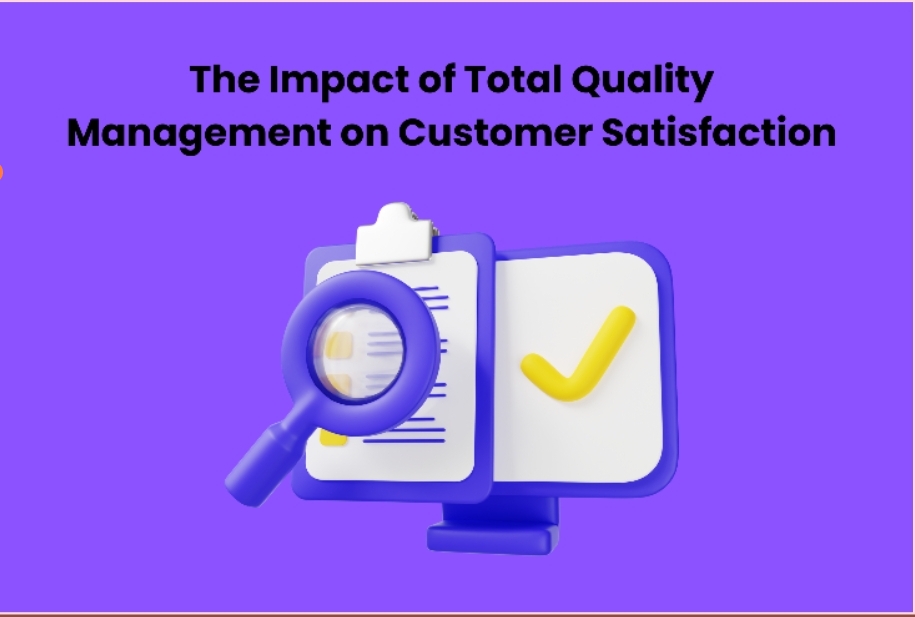Ensuring customer satisfaction is paramount for long-term success in business. Companies are constantly seeking ways to improve their products and services to meet and exceed customer expectations. One approach that has gained significant traction in recent years is Total Quality Management (TQM). This management philosophy focuses on continuous improvement, involving all employees in the quest for excellence. In this blog, we’ll explore the impact of TQM on customer satisfaction and relevance of Lean Six Sigma Certification in today’s business environment.
Table of Contents
- What Is Total Quality Management (TQM)?
- The Core Principles of TQM
- The Impact of TQM on Customer Satisfaction
- Lean Six Sigma Certification and TQM
- Conclusion
What Is Total Quality Management (TQM)?
The management philosophy known as Total Quality Management (TQM) first emerged in the 1950s but took off in the ’80s and ’90s. It is a systematic and all-encompassing method of managing a company that aims to enhance product and service quality by constantly improving it in response to customer feedback. With customer happiness as the end aim, Total Quality Management (TQM) stresses the need for all workers to participate in the process of improving quality.
The Core Principles of TQM
TQM is based on several core principles that guide its implementation within an organisation:
Customer Focus: TQM strongly emphasises understanding and meeting customer needs and expectations. The key to continually satisfying consumers with goods and services is for organisations to match their operations with what they need.
Continuous Improvement: TQM is a continuous process that never reaches a final state of perfection. It entails continuously looking for methods to improve services, goods, and processes to make them better and more efficient.
Employee Involvement: TQM recognises that employees are valuable sources of ideas and innovations. Employees at all levels are empowered to actively participate and contribute to quality improvement initiatives.
Process-Centered Approach: TQM views an organisation as a series of interconnected processes. An organisation’s overall performance may be raised by enhancing its separate processes and how they interact.
Data-Driven Decision Making: TQM relies on data and analysis to drive decision-making processes. This way, we know our improvements won’t be based on guesswork but on hard data.
The Impact of TQM on Customer Satisfaction
Customer satisfaction may be greatly enhanced by using TQM procedures. Product and service quality that meets or exceeds customer criteria may be achieved when organisations prioritise client needs and expectations. As a result, you may expect more satisfied customers, more favourable recommendations, and more money in your pocket.
TQM also aids businesses in finding and fixing process inefficiencies and faults, improving product quality and lowering costs. Customers are more likely to be satisfied with the results if they can count on receiving consistent, high-quality goods and services.
In addition, TQM encourages a mindset of constant development in a company. Everyone on staff is expected to do their part to enhance the quality of work and suggest ways to improve it. The result is an engaged and motivated staff, which in turn improves goods and services and may increase customer satisfaction via improved interactions.
Lean Six Sigma Certification and TQM
One such approach is Lean Six Sigma, which seeks to enhance productivity and quality by decreasing process variability and eliminating unnecessary steps. Those who have earned their Lean Six Sigma certification are better equipped to spearhead company-wide efforts to enhance product quality. Organisations may streamline processes and further reduce defects by integrating TQM with Lean Six Sigma techniques, leading to even better customer satisfaction.
Conclusion
One effective management concept that has the potential to greatly affect customer satisfaction is Total Quality Management. Organisations may achieve customer satisfaction via TQM by emphasising customer-centricity, staff engagement, and continual improvement. TQM may be integrated with techniques like Lean Six Sigma to further improve organisational performance and customer satisfaction. This makes it a beneficial strategy for firms in today’s competitive climate.




